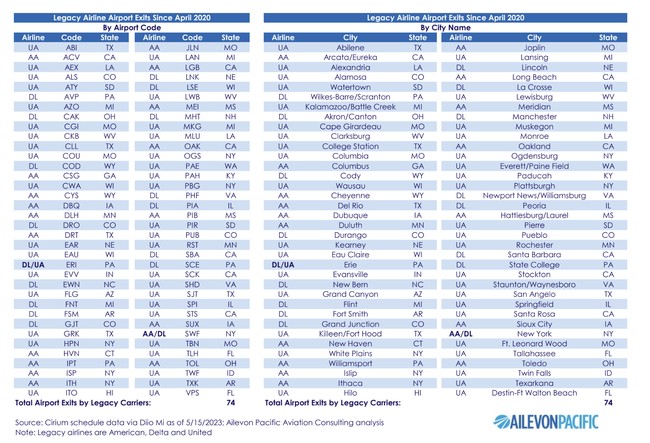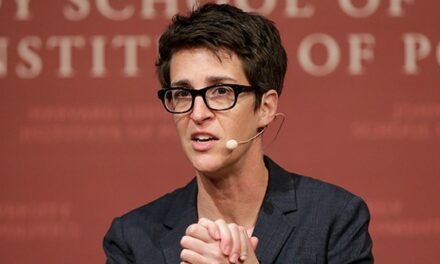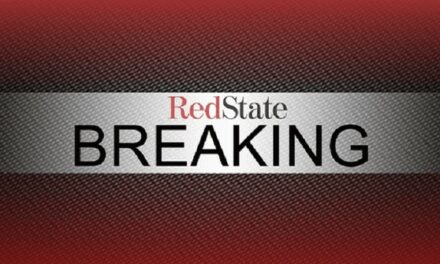We support our Publishers and Content Creators. You can view this story on their website by CLICKING HERE.
Since the beginning of 2020 I’ve essentially split my time between California and North Carolina and also travel cross-country for business at least four or five times a year. So, I’ve spent quite a bit of time on airplanes – long haul/short haul, discount airline/non-discount airline – and in airports large (JFK, Atlanta, and DFW) and small (Santa Rosa, CA and Flagstaff, AZ).
Advertisement
While air travel hasn’t been fun for quite some time, I can testify that under the Biden administration, domestic airline travel has become an absolute nightmare – and it has nothing to do with the weather. It’s more difficult than ever to find a nonstop flight to the places I need to go, and the number of flight options each day has steadily decreased. Stranded passengers have had to camp out in airport terminals for days after their flights were delayed or canceled due to tech meltdowns, people are being charged to even bring a carry-on bag on a flight, and don’t even get me started on how passengers are treated as livestock to be herded from place to place.
And it’s even worse for people living in flyover country, since fares have skyrocketed (only partially due to inflation) and flight availability/quality have considerably decreased.
Why hasn’t the Biden administration done more to encourage competition and protect customers? And what can we hope for from the incoming Trump administration?
Biden Admin’s Antitrust Stance Didn’t Affect Airline Industry
Soon-to-be-former Transportation Secretary Pete Buttigieg believes his term has been a huge success, as he boasts that he’s taken bold steps to “hold airlines accountable” for non-weather flight delays and cancellations, but passengers haven’t really seen any improvement. And progressives have been trying to mask the fact that the Biden administration — which has been plenty happy to go after all manner of other “oligopolies” and “monopolies” — hasn’t done jack about Big Airline except for blocking Jet Blue’s acquisition of Spirit Airlines, which actually would have increased customer service.
Advertisement
As a result:
Today, four airlines—American, Delta, United, and Southwest—control 80% of the market and the airline industry is smaller and more concentrated than at any time since 1914, says William McGee, a longtime Consumer Reports editor who is now a senior fellow for aviation and travel at the American Economics Liberties Project.
RELATED: Will the Justice Department Break Up Google?
DOJ Files Massive Antitrust Suit Against Apple, Accuses Them of Monopolizing the Smartphone Market
In addition to empowering airlines to continue their terrible treatment of consumers – because it’s not like customers can go to another airline for better service – this lack of competition has resulted in the loss of hubs, direct flights, and even a complete loss of air service in mostly conservative states and areas, coincidentally, and harms everyone who’s not one of the coastal elites to whom the airlines cater.
Perhaps that’s why Buttigieg and Biden haven’t done anything about it.
Hubs Lost in Red States
Ohio, home of Vice President-elect JD Vance, has been particularly hard-hit by the loss of airline hubs. Cincinnati and Cleveland were lost in 2014, and even longer ago the state lost hubs in Columbus and Dayton. Cincinnati/Northern Kentucky airport had been a hub with Northwest, and once it was purchased by Delta daily flights reduced to 200 from over 600; by 2019 Delta was only operating 64 daily departures from Cincinnati on average. That
Advertisement
Another red state, Missouri, lost its American Airlines hub in St. Louis in 2009 and is now mostly served by Southwest Airlines, which flies to a total of 62 cities from St. Louis. A number of those cities, though, have nonstop flights on only certain days of the week.
Around the time Delta closed its inherited hub in Cincinnati, it also closed an inherited hub in Memphis, Tennessee. While other carriers like Southwest rushed in to acquire the gate space and added flights, the city still doesn’t have the connectivity it used to have, harming the local economy. Changes at Memphis’ airport also affect the economy in northwest Mississippi and across the river in Arkansas.
It’s been a very long time since another Tennessee city, Nashville, has been a hub. While Nashville’s air traffic has rebounded quite a bit due to the city’s success in branding itself as a conference destination, there’s only one nonstop flight daily to London (crazy since both are major cities for the music industry), and that’s through British Airways, not a U.S.-based carrier.
Those cities at least have air service, unlike 14 U.S. airports that have lost all scheduled commercial air service since 2019. And the three largest U.S. airlines – American, Delta, and United – have exited from 74 airports since April 2020:

So, what should be done?
Advertisement
Nobody on the conservative side (well, other than RINOs) wants massive regulation of any industry. However, when the companies in an oligopolistic industry have settled upon practices that harm consumers, there’s an opening for common-sense regulatory actions that will spur innovation and competition. Back in 2021 Sens. Mike Lee (R-UT) and Chuck Grassley (R-IA) co-sponsored the Tougher Enforcement Against Monopolies (TEAM) Act, which would have codified the Consumer Welfare Standard and combined federal antitrust enforcement agencies into “one streamlined agency,” but it failed. Codifying the consumer welfare standard in some way – whether through legislation similar to the TEAM Act or entirely new legislation – would send a huge message to Big Airline, simply with its passage:
Enshrining the consumer welfare standard into law would give entrepreneurs the confidence to invest in the market of their choice so they can do what they do best: provide lower prices, higher-quality goods and more innovation to Americans. It’s time Congress passed this important, consumer-focused antitrust reform.
Airlines are expected to pressure the Trump administration to ditch a couple of decent rules the Buttigieg/Biden administration enacted, one which requires airlines to automatically issue refunds for canceled flights and another which requires greater transparency in fare advertisements. Rolling back those rules would be a mistake, since they both protect consumers and have the effect of incentivizing good behavior by the airlines.
Advertisement
Delta is especially interested in what they consider to be a more “business friendly” atmosphere in Washington, D.C. given that the FAA investigation into the airline’s complete tech meltdown in July 2024 that stranded passengers nationwide for days is still ongoing, and they don’t want to be on the hook for the type of fine Southwest faced after its December 2022 tech meltdown.
(Side note: Delta’s July 2024 meltdown resulted in my oldest son being stranded in Los Angeles at the end of a business trip while his wife and babies were at home in North Carolina; I dropped everything and hopped in a rental car with him to quickly drive cross-country and we arrived in his driveway 24 hours before Delta would have potentially had him home. I’d be okay with Delta reimbursing me for two hotel nights I sprung for…)
Less accountability for the major airlines will only harm consumers and stifle innovation and competition and will continue to disproportionately affect people in red states/areas. It’s only when companies believe it’s too painful – meaning, expensive – to maintain the status quo that they’ll change. Now that populist Republicans like Donald Trump and J.D. Vance are in charge and the party controls both houses, and with a great Transportation Secretary nominee in former Rep. Sean Duffy (R-WI), it’s time to force that accountability in the airline industry so competition and innovation can flourish. Let’s make airline travel fun again – or, at least, not the expensive nightmarish experience it currently is.
Advertisement

 Conservative
Conservative  Search
Search Trending
Trending Current News
Current News 





